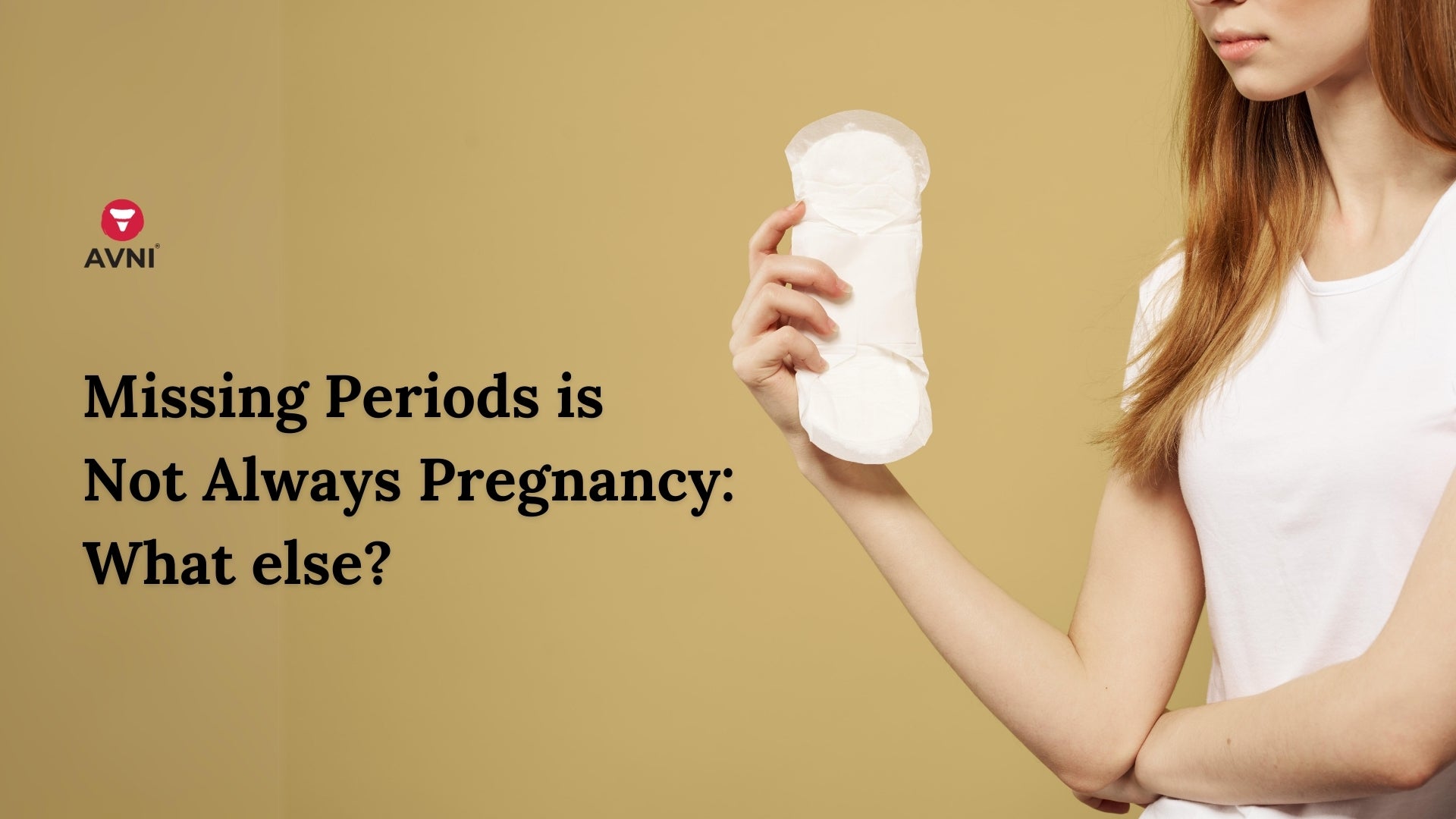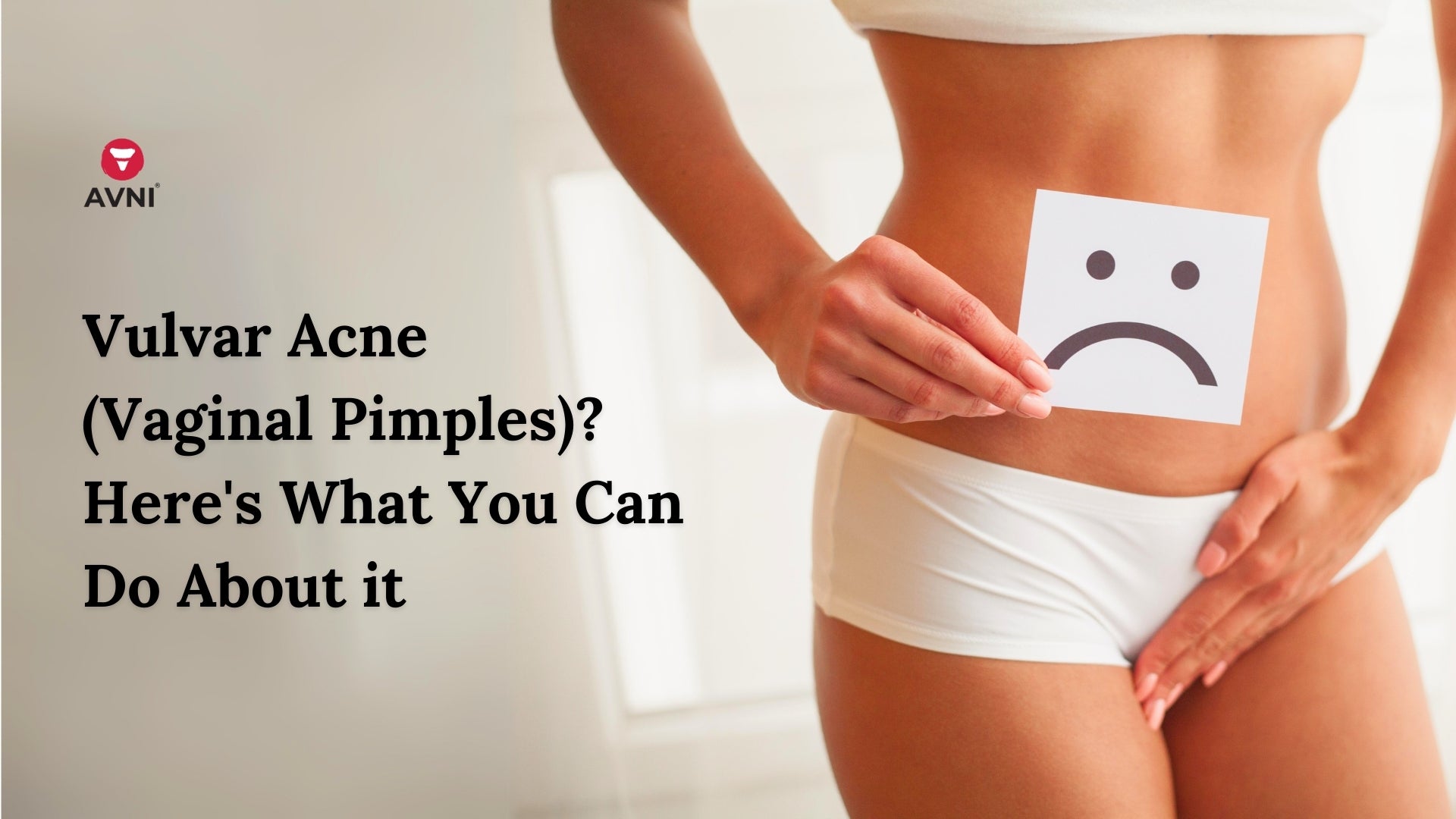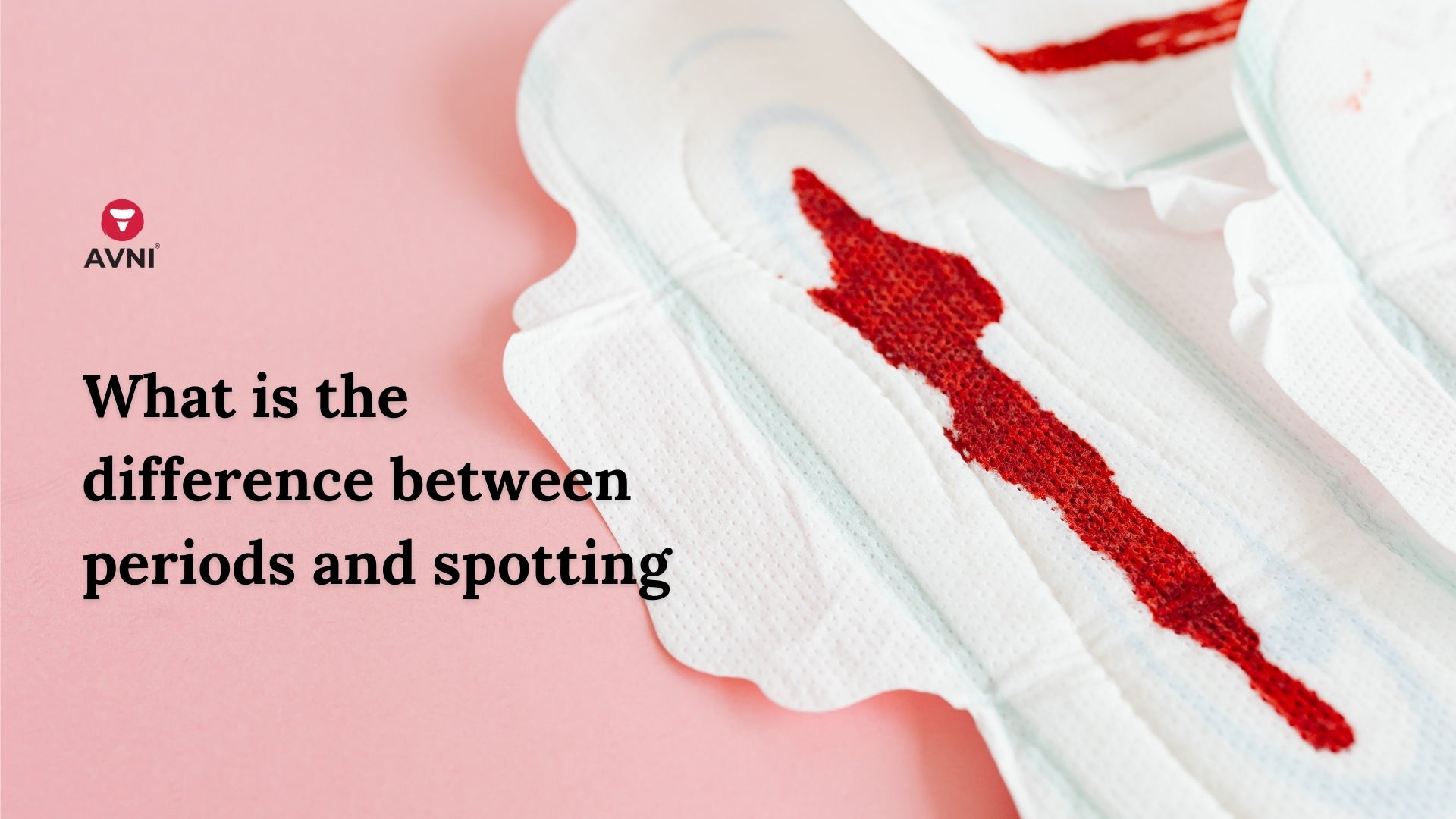
Missing Periods is Not Always Pregnancy: What else?
On a random day: you notice you have missed your period date by 2-3 days, and you decide to ignore it—thinking it's normal.
But it's been a week or two, and you still haven't gotten your period. You start wondering - am I pregnant? But wait, I can't be!
What else can be the reason, then?
While missing periods is a significant sign of pregnancy, it can indicate other underlying issues too. Let's discuss all of them in detail.
Here you go!

Reasons for missing periods: other than pregnancy
- PCOS
This has become quite a buzzword today as many women of reproductive age suffer from it. PCOS, or Polycystic ovarian syndrome, is when a woman releases male hormones, aka androgens, at more than normal levels.
So if you have PCOS, your ovaries may have several cysts. These are small bag-like structures on the edge or inside your ovaries. Some common symptoms are irregular periods, periods that last more than a week, painful cramps, or other hormonal imbalances in the body such as weight gain, hirsutism, etc.
As your body produces more androgens or male hormones than normal causing other symptoms like excessive facial hair on the face and body. Also, you may have enlarged ovaries having cysts that contain immature eggs. These cysts are filled with fluid. These bag-like structures cause your ovaries to not function properly.
But how do I know if I have PCOS or not? Though it's impossible to precisely tell if you have PCOS based on symptoms alone, because some symptoms of PCOS may overlap with general PMS symptoms in women.
Do I have PCOS?
You should consult your gynac if you have similar symptoms as mentioned below.
1. Prolonged periods:
If you have PCOS, you may have heavy bleeding during periods and your period may last for more than 7-8 days. You may also bleed heavily between your periods
2. Missed periods or no periods:
If you suddenly miss your periods significantly for more than two months in a row, it may be an indication of a hormonal imbalance in your body.
As a woman with PCOS, your ovaries might skip ovulation, so you won't get your period. Nevertheless, we recommend you keep Avni's menstrual cup or pads handy if you start menstruating on a date you ideally shouldn't.uddenly miss your periods significantly for more than two months in a row, it may be an indication of a hormonal imbalance in your body.
3. Excessive facial hair or body hair:
Bodies of women who have had PCOS since puberty often grow excess hair on body parts, including the face, chest, and buttocks. Unwanted hair on the body and face can also indicate PCOS. This condition is also called Hirsutism.
4. You are living a stressful lifestyle.
If you have missed your period, consider your lifestyle type. Has it turned stressful lately? If so, stress could be the main reason if your period is irregular.
Your body's various parts, like the brain, the pituitary, and the ovaries, work in coordination to stimulate periods. Your brain's part, the hypothalamus, releases hormones to signal the pituitary gland. Your pituitary gland, in turn, does the job of signaling the ovary to release hormones– estrogen and progesterone.
Now, if you are under stress, your body produces the stress-triggering hormone, Cortisol. Further, this hormone affects the hypothalamus, the part of the brain that stimulates the pituitary. The pituitary now starts affecting your ovaries.
Now, as your ovary gets affected, the coordination gets messed up.
Your periods get irregular as a result of this mess. It is therefore recommended to cope with stress and maintain a healthy lifestyle.
We suggest that you inculcate meditation and simple stress-relieving exercises in your daily routine to keep stress in check.

Perimenopause
As a woman, your reproductive life lasts for approximately 38 years. As you reach the end of your reproductive phase, your body starts showing symptoms like irregular periods. This phase is the perimenopausal phase.
Perimenopause is the phase when your body slowly transitions to your menopausal phase. The menstrual cycle starts getting irregular, and you might also not ovulate. So around the age of 40 years, there might be chances that your body is in its perimenopausal phase.
But have you missed your period due to perimenopause? You can look for other symptoms to understand if they are perimenopause or some other underlying cause.
These are some of the symptoms of perimenopause.
Hot flashes:
Has this ever happened to you? You were sleeping peacefully, and you suddenly felt extreme warmth in the upper body, a feeling of anxiety and redness. Then you were experiencing hot flashes. A common symptom in women experiencing perimenopause.
Irregularity in periods
Your periods might turn irregular as your body reaches the age of 45 or above. This is when it is slowly hitting menopause. So your body starts getting irregular periods, and eventually, your periods stop.
Vaginal tissues may lose elasticity.
Yet one more symptom of perimenopause is the loss of elasticity in your vaginal tissues. As your body gets into the perimenopausal phase, its estrogen levels fall. A lowered estrogen level might make the vaginal tissues lose their elasticity. This might can also be a reason for pain during sexual intercourse.
Cholesterol levels change
Perimenopause causes an elevation of the harmful cholesterol levels in your body and a decrease in the good cholesterol levels. As your body ages and starts moving towards the non-reproductive phase, cholesterol levels also start getting affected.
Your weight has fluctuated.
Menopause also includes a strange weight gain side effect. This is because women lose muscle mass as they age, which affects every aspect of their metabolism.
During menopause, women usually gain weight as a result of the drop in estrogen. Estrogen is known to help maintain muscle and bone mass while also maintaining water in the body. When this hormone is no longer produced, the body's metabolism slows down resulting in weight gain despite consuming the same amount of food.
Other Reasons
You are exercising too much.
Too much exercise is also related to irregular periods. Say you are a woman who has to undergo training daily.
Then, you might experience your period stopping or get irregular. Further, if you switch to a vigorous routine, there can be changes in your menstrual cycle too. This, in turn, may lead to a missed period.
In such a case, you must consult your gynac to seek advice on whether your exercise routine is the reason behind the missed period.
When to see a doctor?
While many times, your periods will get on track after some time, especially if you are sure you aren't pregnant. However, if you think you have skipped your period more than twice, it is a good idea to consult your gynecologist. Also, if the delay in the period has uninvited symptoms like pain, fever, or tiredness, go see your doctor.
The final words
Most of the time, your missed periods aren't due to a severe underlying issue. It could be due to changes in your fitness routine, certain medications, or stress. It's always a good idea to keep track of your dates and see your doctor if there's a missed period. If you consistently miss periods 3 to 4 times in a row, you might as well have PCOS. It is advised to check and confirm once.
A regular menstrual cycle tells you that your reproductive system is functioning correctly. It is, therefore, important to not ignore any signs your body might be giving to indicate a dysfunctional reproductive system.
The first step in experiencing wholesome periods is to take good care of your menstrual health. Therefore, we at Avni make natural and sustainable menstrual products to ensure every woman has good menstrual health and rash-free periods. Check more of our menstrual products here.



Leave a comment
This site is protected by hCaptcha and the hCaptcha Privacy Policy and Terms of Service apply.